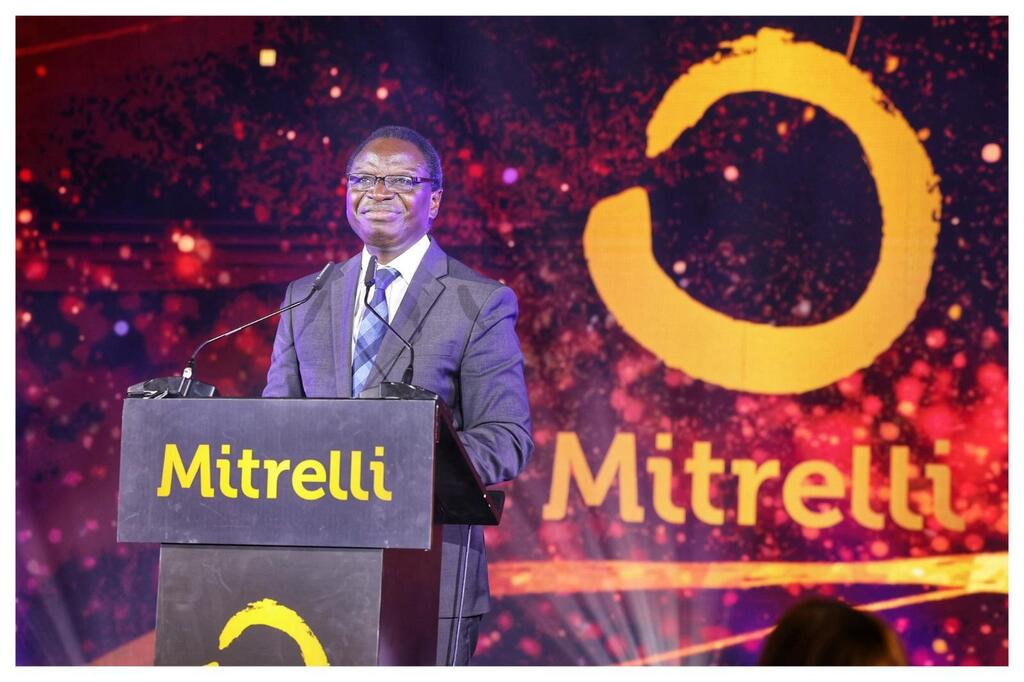
Senegal’s challenges at home don’t detract from its hopes for Israeli collaboration
Dr. Serigne Gueye Diop, Minister and Advisor to the President of Senegal for Agriculture and Industry, spoke to CTech about potential partnerships between the two nations
The African nation of Senegal is facing local problems as it balances food shortages, employment issues, and alleged threats to democracy - but that isn’t stopping the country from looking at places like Israel to help it achieve success in sectors such as food-tech and education. During a visit to Jerusalem to celebrate 10 years of partnerships between the two nations, Dr. Serigne Gueye Diop, Minister and Advisor to the President of Senegal for Agriculture and Industry, shared what he believes to be positive potential for Israel and Senegal.
“Senegal has 17 million people today and the issue of agriculture is a critical issue,” he explained. “We are still importing a lot of food, cereal, wheat, milk, and more. We know Israeli technology can help us with the issue of food deficiency.”
Agriculture is one of Senegal’s most popular industries, with 10 million people dedicated to the profession. However, Minister Dr. Diop confirmed to CTech that farming is only 11% of the entire country’s GDP. Today, 70% of its population is under the age of 35 - making it a perfect environment to invest in education, tech, and science for its future workforce.
“We have 10 million young people who today are trying to get a good education to get a good job, to get access to knowledge,” the Minister continued. “This is [another] big challenge that we need to solve if we want to really get into the next step of development. For the young people of the country, as policymakers, we need to have a short, medium, and long-term plan to get them to the best level of knowledge in terms of technical knowledge, in terms of AI, and in terms of education at the best universities.”
Senegal offers a lot of promise for the future, but it doesn’t negate other issues the country currently faces. Minister Dr. Diop highlighted the country’s newfound 15 trillion cubic feet of natural gas as a resource the government hopes to capitalize on. Yet efforts appear to have squandered many of the hopes for locals despite claims that the rise in energy production will lower costs for its citizens over the next 5-10 years. AP News reported that its new oil rig off the coast of Saint-Louis has resulted in many residents facing more poverty and unemployment, with many women turning to prostitution to feed their families.
And despite the Minister’s claim that Senegal is “a democratic weight” on the continent and that President Macky Sall “has brought a lot of change in diplomacy” in recent years, that democracy has been on loud display as thousands of protestors take to the streets in the capital city of Dakar to protest Sall’s refusal to rule out standing for a third term in office. So far, three people have died protesting what citizens are calling “a dictatorial path” steered by its current leadership. “The president did not announce any terms,” Minister Dr. Diop confirmed. “Today it is speculation.”
Senegal indeed has its problems, but the country is sure that they can be overcome as it focuses on a future that highlights tech and collaboration with other nations. Africa will be home to more than half of the world’s population under the age of 15 in just a few decades, making issues like food-tech, education, and water irrigation technologies vital for the billions of people who are currently living without adequate access to essential needs. Countries like Senegal, Angola, and others have already started looking at Israel as a potential partner for long-term collaboration, offering Startup Nation entry into what will become the world’s largest market in return.
2 View gallery


Dr. Serigne Gueye Diop speaking to the crowd of 1000, including former president of Israel Reuven Rivlin and Mayor of Jerusalem Moshe Lion
(Photo: Micha Brikman)
Minister Dr. Diop was one of a group of representatives from Senegal, Angola, Côte d'Ivoire, Switzerland, and Israel who this week gathered in Jerusalem to celebrate 10 years of African and Israeli collaboration in regard to technology, services, and infrastructure solutions. The event was hosted by the Swiss Mitrelli Group, which has established national, economic, and social projects in African countries to benefit their local populations. Among many of the topics discussed was how African nations can adopt Israeli technology and solve some of the challenges in the region.
“What we want to do now is partner with countries like Israel, with companies like Mitrelli, to build the future of Senegal,” the Minister told CTech. Speaking at the event of more than 1,000 guests including former president of Israel Reuven Rivlin and Mayor of Jerusalem Moshe Lion, he added: “Israeli innovation in agri-tech and food-tech have an important role in addressing the world’s needs… I am confident that, with the support of our president and government, and together with Mitrelli Group and Israeli innovative technology, we can overcome the challenges that we face and build a world where everyone has access to food, education, and innovation.”
First published: 10:32, 18.05.23














